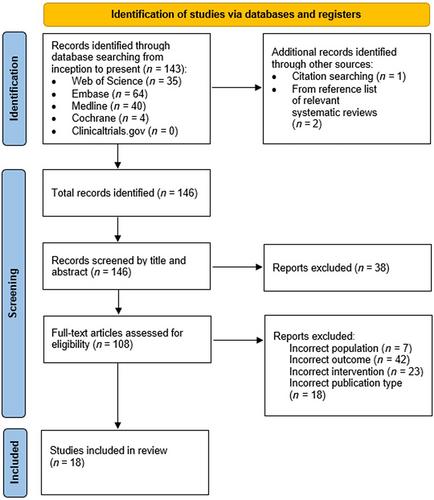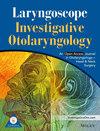To establish audiological and other outcomes following cochlear implantation in humans and animals with eluting electrodes.
Systematic review and narrative synthesis. Databases searched (April 2023): MEDLINE, EMBASE, CENTRAL, ClinicalTrials.gov, and Web of Science. Studies reporting outcomes in either humans or animals following cochlear implantation with a drug-eluting electrode were included. No limits were placed on language or year of publication. Risk of bias assessment was performed on all included studies using either the Brazzelli or Systematic Review Centre for Laboratory animal Experimentation (SYRCLE) assessment tools. The review was conducted in accordance with the Preferred Reporting Items for Systematic Reviews and Meta-Analyses (PRISMA) 2020 statement.
Searches identified 146 abstracts and 108 full texts. Of these, 18 studies met the inclusion criteria, reporting outcomes in 523 animals (17 studies) and 24 humans (1 study). Eluting electrodes included dexamethasone (16 studies), aracytine (1 study), nicotinamide adenine dinucleotide (1 study), the growth factors insulin-like growth factor 1 (IGF1) and hepatocyte growth factor (HGF) (1 study), and neurotrophin-3 (1 study). All included studies compare outcomes following implantation with an eluting electrode with a control non-eluting electrode. In the majority of studies, audiological outcomes (e.g., auditory brainstem response threshold) were superior following implantation with an eluting electrode compared with a standard electrode. Most studies which investigated post-implantation impedance reported lower impedance following implantation with an eluting electrode. The influence of eluting electrodes on other reported outcomes (including post-implantation cochlear fibrosis and the survival of hair cells and spiral ganglion neurons) was more varied across the included studies.
Eluting electrodes have shown promise in animal studies in preserving residual hearing following cochlear implantation and in reducing impedance, though data from human studies remain lacking. Further in-human studies will be required to determine the clinical usefulness of drug-eluting cochlear implants as a future treatment for sensorineural hearing loss.



